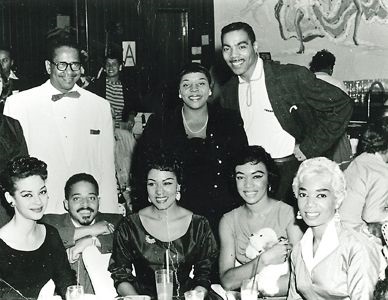
Las Vegas has helped many people launch their careers and become global superstars. Famous names that owe a lot to the city that never sleeps include Frank Sinatra, Elvis Presley, Celine Dion, Liberace and Cher, all of whom leapt further into fame after headlining in Las Vegas. The city is also home to numerous notable individuals, with natives including Andre Agassi, Killers’ frontman Brandon Flowers and NFL star Steven Jackson, to name but a few.
The controversial history of Las Vegas has been fraught at times, particularly throughout the middle part of the 20th century, when it was often referred to as the “Mississippi of the West” due to its reluctance to end segregation. While people of colour could find work and residences in Las Vegas in the 50s, they were relegated to back-room jobs, with higher profile customer-facing roles almost exclusively going to their white counterparts, and natives and visitors alike were required to stay only in the Westside district, even if they were performing. The protests and hard work of multiple African Americans over this time would eventually result in integration.
The Moulin Rouge
The Moulin Rouge was a short-lived casino that opened in Las Vegas in 1955 and was famous for being the first hotel and casino that not only allowed both black and white patrons to mix, but actively encouraged the practice. Despite only remaining open for half a year, the Moulin Rouge attracted some of the biggest performers of the time, including Judy Garland, Ella Fitzgerald, Bob Hope and Dean Martin. Although the casino closed after just six short months due to financial issues, its legacy lives on.
Charles I. West
Charles I. West was not a native of Las Vegas but moved to the city in 1954 on the suggestion of a friend – the famous bandleader Count Basie. Dr West worked tirelessly throughout his time in Las Vegas to promote the rights of black people and see more people of colour in respected professional roles within the city. Dr West himself became the first black man to take the Board of Medicine Examination in Nevada State and become southern Nevada’s first black medical doctor. He was also an avid civil rights activist and one of the core leaders of the local movement for many years.
Alice Key
The journalist and entertainer Alice Key also moved to Las Vegas in 1954 to work for Dr West’s publication, the Las Vegas Voice. Key started what may have been the nation’s first black television show around this time, before later embarking on a public service career. Key worked as NAACP’s executive director for her local area and spent time fighting for the rights of the black community and of women before taking on the role of the State of Nevada’s deputy labor commissioner.
Don Barden
While casinos may have changed a lot since the 50s, Don Barden made history when, in 2002, he officially became the first black man to own a casino in Las Vegas. Barden took over the three Fitzgerald’s casinos, which were located in Colorado, Mississippi and downtown Las Vegas, which he ran for several years. The legacy of Barden helped improve countless African American lives and shone a light on the fact that, with enough hard work, anyone can achieve their dreams.
Bob Bailey
Bob Bailey initially came to Las Vegas in 1955 as an entertainer, performing at the famous Moulin Rouge. Following the closure of the casino, Bailey was prompted to remain in the city and become active in the ongoing civil rights battle. Bailey was a strong advocate of education and training programmes to facilitate the placement of more black people in professional or high-profile employment. He was appointed as chairman of the Equal Rights Commission in the early 60s and later as deputy director of the Minority Business Development Agency of the US Department of Commerce.
Mabel Hoggard
Mabel Hoggard is known for having been the first black schoolteacher in the school district of Clark County. Hoggard was active throughout most of her career in working to promote the rights of black people and other disadvantaged groups and was a member of numerous organisations, programmes and associations including NAACP, Project Savings, the Classroom Teacher’s Association and the League of Women Voters, to name but a few. Hoggard’s relentless work earned her the honour of a Distinguished Nevadan Award in 1977.
The casino industry has seen great changes over the past century and its reputation has changed from being largely regarded as a corrupt industry, to become a reputable and respected global business. One of the biggest changes has been the advent of online gambling, which opened the industry up to a whole new demographic of players. The work of individuals such as those profiled above helped pave the way for these changes and shaped the modern casino industry.
